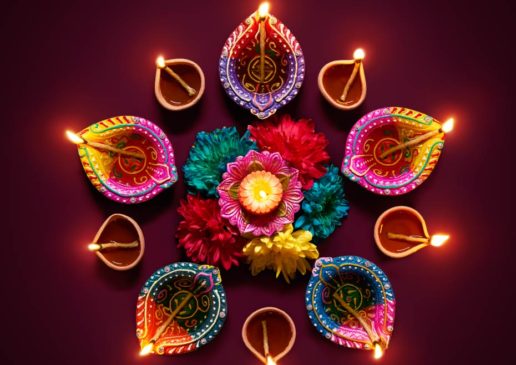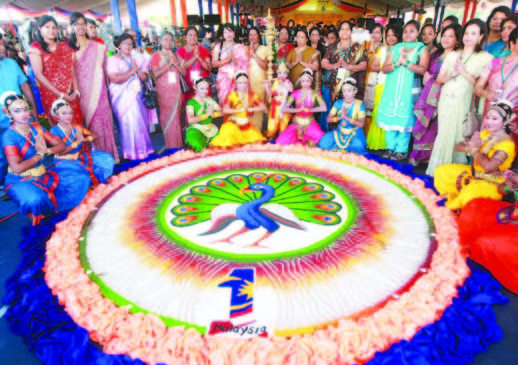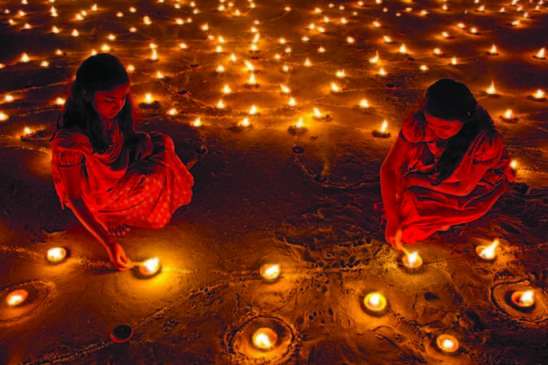 Diwali is celebrated throughout the world to ward off the darkness and welcome the light into our lives.
Diwali is celebrated throughout the world to ward off the darkness and welcome the light into our lives.
Celebrating the triumph of good over evil and spanning five days each autumn, Diwali is considered by some to be the start of the New Year. In 2017, Diwali will be celebrated on October 27.
In Guyana, this “festival of lights” is believed to have been brought to Guyana in the 1800s by the first indentured people from India. The celebrations hold special significance: wearing new clothes is a symbol of healthy souls in healthy bodies; the distribution of sweets signifies the importance of serving and sharing, and exchanging greeting cards denotes the goodwill of each other. Keeping homes illuminated inside and out is a practice meant to illuminate the path for Goddess Lakshmi when she visits.
Suriname, like its neighbour Guyana, celebrates Diwali with much gaiety and in a similar way of lighting diyas (lamps) and sharing sweets.
Celebrated under the name Lam Kriyongh during the months of October-November, Diwali in Thailand is celebrated by lighting diyas made of banana leaves in which candles are placed, along with a coin and incense. These are then set afloat on a river. Diwali celebrations in Thailand are not extravagant: people simply greet each other and wish them happy returns of the day. Similar to Guyana and Suriname, distribution of sweets is a common practice on this day in Thailand.
Also known as Deepavali, a Sanskrit word generally translated as “necklace of lights”, Diwali is celebrated in Malaysia by people of all races, not just the Hindus living there. Though it may not be celebrated on a grand scale, Diwali in Malaysia is a time to invite people over to indulge in all the delicious sweets prepared. It is also a holiday in Malaysia and a time to visit and pay homage to the elders. Crackers are banned in Malaysia, so Diwali celebration is enjoyed quietly.

Indians form just about one 1 per cent of the total population in Kenya and Tanzania. However, the influences of this tiny number have considerable economic influence, and they are a well-respected minority. They also celebrate the major Indian or Hindu festivals of the Hindu solar calendar. As they have restricted interaction with the locals and do not seek converts, they usually celebrate their festivals the same way India does. The significance, customs and belief related to the festival of light, therefore is almost same like that of India. Illumination, worshipping of god and goddess of wealth and prosperity are some of the common practice. Diwali is declared as a national holiday in Kenya only.
Just as in India, people of Fiji, a country in the South Pacific, celebrate Diwali with elaborate lighting and candle decorations. Taking advantage of the beautiful festival, people reaffirm the bonds of love shared with loved ones by exchanging greetings, sweets and gifts of love. Diwali also affords the opportunity for people of different faith and communities to come together and live in a spirit of communal harmony.
But Diwali is not just a Hindu festival. It also holds special significance in other religions such as Buddhism, Sikhism and Jainism.
For Buddhists, the spiritual insight of Diwali is the triumph of good over evil as their Emperor Ashoka gave up his violent ways and chose the path of peace and non violence on this day only.
Nepal’s Newar Buddhists celebrate Diwali as the returning of light and balance to the world.
For the Sikhs, this is the day when their religious leader Guru Hargobind Ji was able to free himself and other Hindu kings and gurus from the prison of the Mughal Emperor Jahangir. After coming out from the Gwalior Fort, the guru and others went to the Golden Temple of Amritsar. So this day is celebrated to commemorate his homecoming.
Even today, the Golden Temple is decorated in the grandest manner possible on the day of Diwali along with performance of breathtaking fireworks that has made Amritsar one of the top Diwali vacation destinations in India.
Just like the Hindus, Buddhists and the Sikhs, Diwali is a special day in the Jain calendar as well. This is the day when Lord Mahavira attained Moksh, Nirvana, or eternal bliss. Mahavira’s attainment of nirvana is seen as a passage from darkness to illumination or the attainment of the ultimate knowledge.
To the Jains, the light of Diwali has another special significance. It signifies the light leaving his body and traveling to heaven, having succeeded in escaping from the trap of rebirth. They will thus illuminate lights to mark this passage, and also to keep the light of his knowledge burning.
Though there may be variations in the celebration of Diwali around the world, one thing remains constant – the coming together to illuminate homes and lives.



